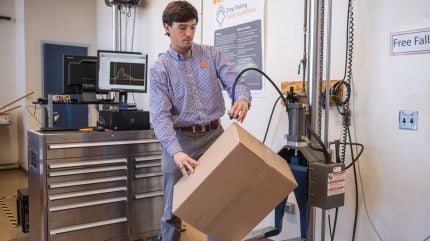
Clemson University’s Sustainable Packaging Innovation Lab (SPIL) has announced the allocation of $2.5m to advance sustainable packaging solutions aimed at enhancing the competitiveness of US speciality crops in international markets.
The funding for SPIL is part of a $5m initiative from the United States Department of Agriculture (USDA) Foreign Agricultural Service, part of the Assisting Specialty Crop Exports programme.

Discover B2B Marketing That Performs
Combine business intelligence and editorial excellence to reach engaged professionals across 36 leading media platforms.
A total of 13 projects have been selected for funding, each contributing to compliance with international regulations and promoting a circular economy.
This funding initiative is specifically focused on meeting the new regulatory requirements in the EU and Canada, which are moving towards the elimination of plastic packaging in favour of recyclable or compostable options for produce.
These recent regulations mandate the reduction of single-use and small-quantity packaging, promoting the use of bulk bins for produce weighing less than 1.5kg.
Additionally, the guidelines stipulate that plastic packaging must incorporate a higher percentage of post-consumer recycled content.

US Tariffs are shifting - will you react or anticipate?
Don’t let policy changes catch you off guard. Stay proactive with real-time data and expert analysis.
By GlobalDataThe regulations also call for the removal of shrink wrap and the implementation of compostable labels, facilitating a more sustainable disposal process.
These regulatory changes align with the UN’s global efforts to minimise plastic waste and contribute to the establishment of a Global Plastics Treaty.
Clemson University sustainable packaging assistant professor and initiative leader James Sternberg said: “This lab is all about enabling US speciality crop exporters to succeed in markets that now demand sustainable packaging.
“We’re building the future of ag packaging with real-world technologies that ensure compliance and competitiveness.”
The US speciality crop export sector, valued at $143bn, is facing increasing challenges due to evolving foreign regulations, according to Clemson University.
Many of the funded projects are in the early stages of development and are utilising SPIL resources to enhance their market readiness, secure necessary certifications, and initiate pilot-scale production.
The lab’s interdisciplinary approach, which combines food science, materials engineering, and policy analysis, is said to ensure that each packaging solution is rigorously tested for both performance and practical economic viability.





